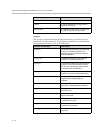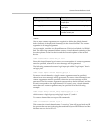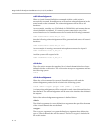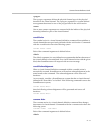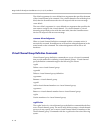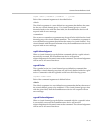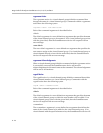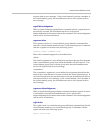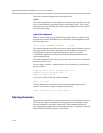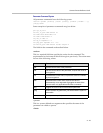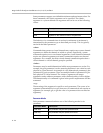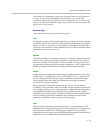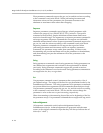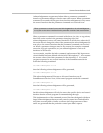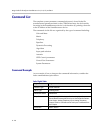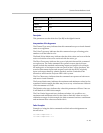
Design Guide for the Polycom SoundStructure C16, C12, C8, and SR12
A - 22
Each of the command arguments is described below.
<label>
The <label> argument is a user-defined text argument that specifies the name
of the virtual channel group that will have its members listed. If no virtual
channel group exists with the given label, then SoundStructure will respond
with an error message.
vcglist Acknowledgements
When a virtual channel group definition command with the vcglist action is
successfully executed, SoundStructure will send an acknowledgement with
the following syntax:
vcglist <label> [<vcmember> [<vcmember ... ]]<term>
This acknowledgement uses the same syntax as the vcgdef command, but with
the vcglist action. The <label> argument is a user-defined text argument
indicating the name of the virtual channel group, and zero or more
<vcmember> arguments will indicate the virtual channel members of the
virtual channel group.
The acknowledgement will only be sent to the control interface on which the
command was received.
As an example, consider a system where we have defined a virtual channel
group as follows:
vcgdef "all zones" "zone 1" "program audio" "zone 2"
vcgremove "all zones" "program audio"
vcgadd "all zones" "zone 3"
If we now send the following vcglist command,
vcglist "all zones"
Then SoundStructure will send the following acknowledgement to the
interface on which the vcglist command was received.
vcglist "all zones" "zone 1" "zone 2" "zone 3"
Adjusting Parameters
Parameters are adjusted by executing commands on a SoundStructure device.
There are three types of commands: system parameter commands, virtual
channel commands, and matrix commands. These commands adjust the
corresponding parameter type as described previously. The general syntax for
all parameter commands is given in this section.



